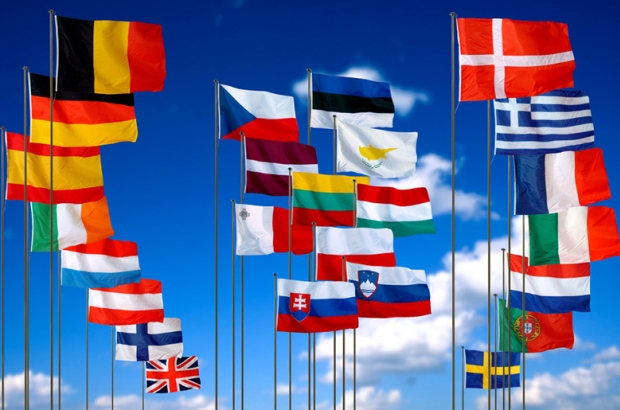- Daily & Weekly newsletters
- Buy & download The Bulletin
- Comment on our articles
Getting political
Brussels is burning. Between terrorist raids, growing manifestations for and against the presence of Islam in Europe, and protests against the policies of the new federal government, there is much chew over for the politically-minded Brusselaar.
But where do you go to hash out the latest developments with other news-hungry politicos? In the capital of the European Union, filled with governmental, intergovernmental, non-governmental and every other type of organisation, you shouldn’t have to look far.
If you’re just looking to talk about the big issues, one good place to start is Conflict Solutions International (CSI), an international NGO that works on non-violent conflict resolution. CSI holds regular-ish meet-up sessions in Brussels to discuss the hot topics international politics.
Join an action group that interests you
More interested doing something to help a political cause? Most of us have a hot-button issue that we really hone in on when we’re talking politics. It could be the environment, education, healthcare, etc. Regardless of your interests, Brussels being Brussels, there is almost certainly an organisation working on your issue in the capital.
For example, if the environment is your thing, Brussels is home to scores of organisations to choose from, from the international giants like Greenpeace to local level activists like the Field Liberation Movement, an organisation against the growing of genetically modified crops in Belgium.
Just do an Internet search for the topics that get you riled up and ask them if they are looking for volunteers or have any events open to the public. Once there, guaranteed you’ll be surrounded by people equally as inspired by your topic as you are.
Diving into local politics
It’s a common stereotype that expatriates in Belgium often live in the “EU bubble” and never really invest in the city itself. However, there are plenty of expats who do care about their city and want to get involved in how their community is run.
If this is you, the first thing to do is to find out what’s happening in the commune where you live. One way to do this is by attending the public meetings each commune holds. For example, if you live in Brussels city, you can attend one of the public city council meetings, which are held once or twice per month.
You can simply go to listen in but if you have a particular issue you’d like to be discussed, this will be the place you can voice it. Each the communes will have its own procedures for bring questions or issues to the council (here are the conditions for Brussels, Ixelles and Etterbeek). However, they all generally ask you to meet the same conditions: that you be a resident of the commune, that you have at least 20 signatures from commune inhabitants supporting your question, and that you submit your question a certain number of days before the meeting.
Of course, getting involved in local politics requires knowing the local languages. Don’t expect local council meetings to go down in English. To follow and participate, you’ll probably have to brush up on your French, if not your Dutch as well.
Youth in politics
There are also ways for young people to get involved in politics. The Youth Council of the French Community gives young people a way to voice their views on topics at the national and international level. It is led by a 50-person General Assembly of elected members ages 18 to 30 who are meant to represent the voice of youth in Belgian and international politics.
Likewise, every year the French Community also holds the Youth Parliament, which gives 80 youths between 17 and 26 years old the chance to visit the Belgian parliament and role play real situations and democratic decision making.
For Dutch-speaking youth, there is also the Flemish Youth Council, which advises the Flemish government in youth matters. Flemish ministers are obliged to hear the views of the Flemish Youth Council concerning any decision that might affect children or youth.

















